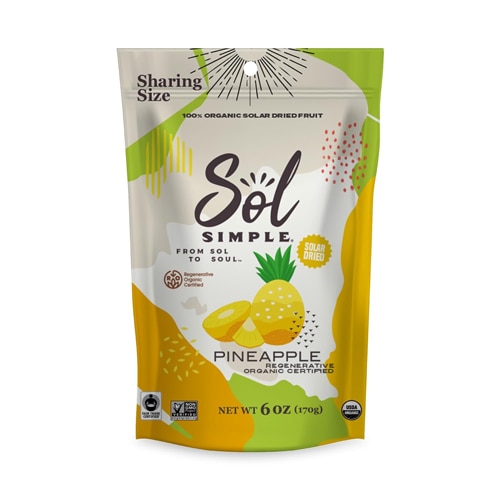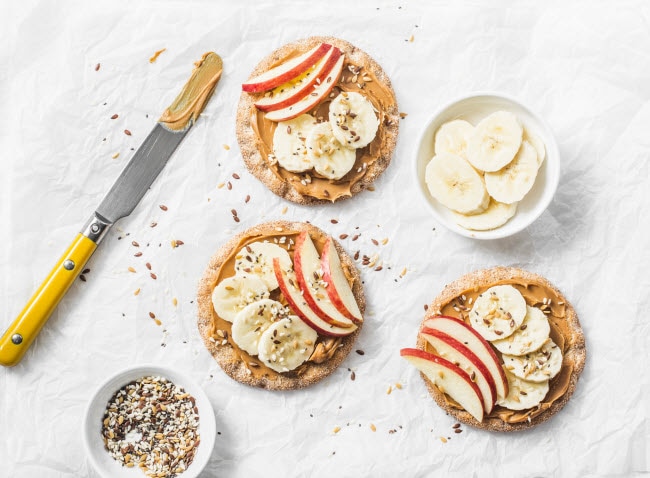It’s common knowledge that fruits, vegetables and whole grains promote good overall health. Specifically, they’re some of the most beneficial foods for a healthy heart, strong immune system and a resilient gut. Besides being rich in essential nutrients such as fiber, vitamins and minerals, these foods also offer the potential to provide prebiotics that support the health of our gut microbiome.
What, exactly, are prebiotics?
Prebiotics – not to be confused with probiotics – are a type of fiber that “feed” and nourish the beneficial bacteria that naturally reside in our guts. Prebiotics act as fuel for good bacteria and help maintain a healthy gut microbiome, or balance of microorganisms that live in the digestive tract.
Eating a diet rich in prebiotic foods will help support gut health. Here are 10 that deserve a place in everyone’s diet due to the various health benefits they provide. Aim to eat at least five a day, and vary it up so you don’t get bored. These foods are as affordable as they are delicious, too, so enjoy freely!
Prebiotic Foods List
1. Banana
Bananas offer many benefits for gut health. An excellent source of prebiotic fiber, bananas also supply potassium, magnesium, vitamins B6 and B5 and vitamin C. Bananas also provide unique protection for the gut by increasing the mucous membrane layer of the stomach. In addition, they help neutralize acidity (making them great for heartburn).
Tip: For easier digestion, eat bananas when they’re dotted with spots — they’re riper and higher in enzymes that assist with digestion. Freeze bananas when they become very soft and over-spotted, then toss into smoothies.
2. Artichoke
They may look a bit intimidating, but artichokes are one of the best vegetables you can eat for a healthier body. Rich in prebiotics, artichokes also deliver enzymes that encourage detoxification. This improves overall gut health and enhances our immune system at the same time.
Tip: Artichokes have a fantastic briny flavor that can reduce the need for salt in dishes. Buy artichoke hearts frozen or canned if you don’t want to peel fresh artichokes. This makes them quick and easy to use.
3. Asparagus
This stalky vegetable isn’t just delicious; it’s also great for liver health, excellent at combatting bloating and is easy to digest. That’s a win for anyone looking to improve gut health. Asparagus contains four grams of fiber per cup and is even a great source of folate, a key B vitamin essential for overall health. High in insoluble fiber, asparagus supports regular bowel movements.
Tip: Buy asparagus frozen if you’re afraid you won’t be able to use it before it spoils. You can grill it, bake it or use it in soups whether you buy it fresh or frozen.
4. Oats
Oats are one of the most underrated whole grains for improving gut health. Research has shown that people who eat whole-grain oats on a regular basis have healthier microbiomes. Oats contain a near-perfect ratio of soluble and insoluble fiber. This creates the perfect environment for a healthy colon by feeding good bacteria in the gut and assisting with regularity. Oats are also a great source of beta-glucans, a type of fiber that supposrts heart health.
Tip: Always look for whole grain in ingredients lists. For oatmeal, opt for rolled oats, steel-cut oats or their quick-cooking varieties. Optimally, avoid instant oatmeal with high amounts of added sugars and sodium, or choose an organic instant oatsthat contains natural, less refined ingredients if you prefer instant oats for convenience.
5. Berries
You can’t beat berries when it comes to heart health, brain health and gut health. Berries contain both soluble and insoluble fibers to promote regularity and feed good bacteria. In fact, they’re one of the best sources of fiber among all foods – not just fruit. They’re low in sugars – (making them a preferable fruit option), and they’re an excellent source of vitamin C. Raspberries may be the big winner with 9 grams of fiber, 0 grams of fat and 0 grams of added sugar per cup!
Tip: Feel free to buy berries frozen; they’re just as healthy as fresh, more affordable, and you’ll never have to worry about them going bad. Snack on them right out of the freezer!
6. Apple
Found in apples, oranges, and bananas, pectin is one of the best types of prebiotic fiber for gut health. Pectin slows digestion and helps regulate blood sugar levels, making you feel fuller longer and helping to remove excess cholesterol from the bloodstream.
Tip: For the greatest gut health benefits, eat apples raw rather than cooked. Once cooked, the pectin content breaks down.
7. Sweet potato
Sweet potatoes are one of the most popular types of root vegetables with good reason. These delicious, sweet tubers are rich not only in flavor but also in antioxidants, fiber, potassium, B vitamins and vitamin C. As another benefit, sweet potatoes are less impactful on blood sugar levels.
Tip: For the biggest benefits, skip butter and sour cream and enjoy sweet potatoes with healthier toppings such as salsa or with salt-free seasoning.
8. Mango
Sweet, creamy mangoes are especially beneficial for gut health as they contain digestive enzymes that help break down fats, proteins and carbohydrates. They’re also high in vitamin C, beta-carotene and fiber.
Tip: Avoid dried mango with high amounts of added sugar for the best health benefits.
9. Papaya
Papaya is one of the most beneficial fruits you can eat for gut health due to its high amounts of beneficial digestive enzymes. They soothe the gut and assist with digestion of proteins and fats. These tropical fruits help to crowd out bad bacteria in the gut and are a good source of prebiotics. Papaya is an excellent source of vitamin C and the antioxidant beta-carotene, helping promote beautiful skin and a healthier immune system.
Tips: Be sure papayas are very ripe before enjoying them to get the most nutrients. They should be almost completely yellow in color at their peak ripeness.
10. Pineapple
The well-loved pineapple is high in fiber and bromelain, a digestive enzyme that breaks down protein and helps relieve inflammation. Pineapple also is an excellent source of manganese, a mineral that helps promote healthy metabolism.
Tips: Pineapple makes a perfect snack any time of the day since it’s easy to digest, low on the glycemic index and a great source of vitamin C. It contains over 100 percent of our daily vitamin C needs in just one cup!




